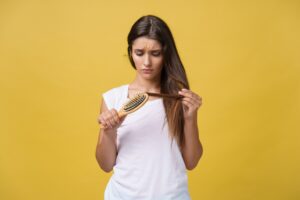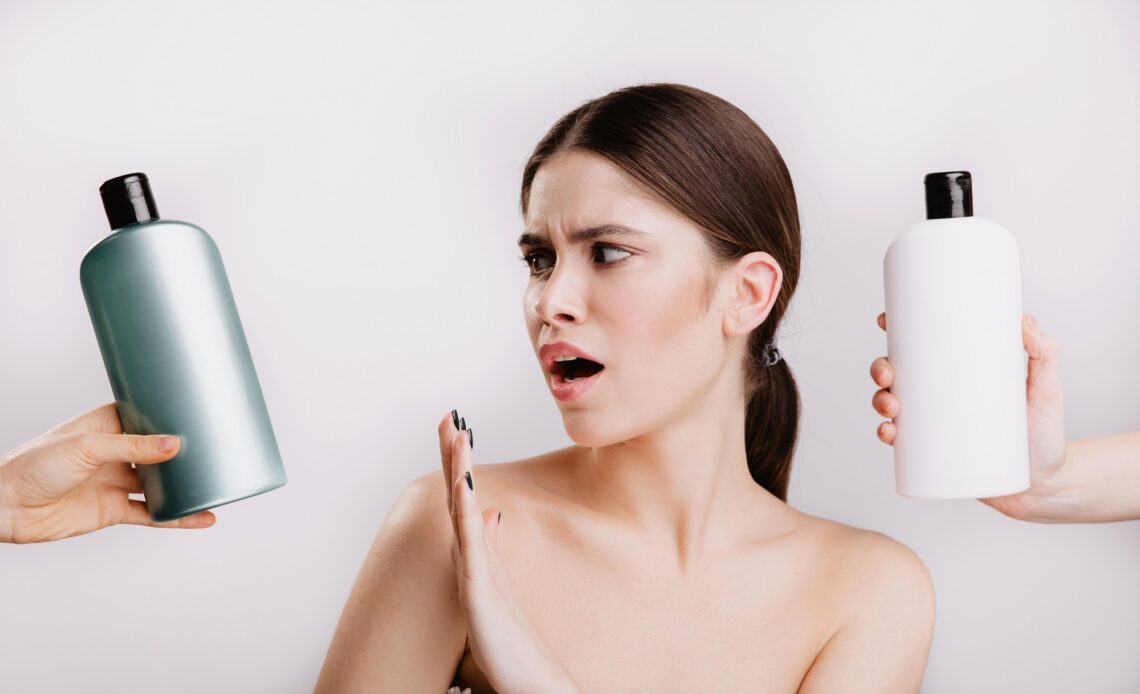Understanding the Link between Shampoo and Hair Loss
Hair loss can be distressing, and one often overlooked cause is the shampoo you use. Shampoos are designed to clean your scalp and hair, but not all of them do so gently. Some contain harsh chemicals that may strip your hair of its natural oils, leading to damage and potential hair loss. It’s essential to be aware of these ingredients and how they might affect your scalp health.
Fortunately, the clean beauty movement has shed light on hair loss issue by promoting products that are free from harmful chemicals. By understanding the potential risks associated with conventional shampoos, you can make better choices that align with both your hair goals and overall health.
Common Ingredients in Shampoo that May Cause Hair Loss
Certain ingredients in commercial shampoos can harm hair health. Being aware of these can help you avoid products that contribute to hair loss.
- Sulfates: These are detergents used for their foaming capabilities. While they effectively remove dirt and oil, they can also strip the scalp of essential moisture, leading to dryness and irritation.
- Parabens: Used as preservatives, parabens can mimic hormones in the body and have been linked to various health concerns, including potential impacts on hair health.
- Silicones: Can build up over time, weighing hair down and causing breakage.
- Formaldehyde-Releasing Preservatives: These chemicals are used to prolong shelf life but can cause allergic reactions and contribute to hair thinning and hair loss.
Choosing shampoos free from these substances can help protect your hair and reduce the risk of damage and loss.
The Science behind Hair Loss: What You Need to Know
Hair loss can result from various scientific factors, and understanding them helps in finding the right solution. Hair grows in cycles anagen (growth), catagen (transition), and telogen (resting). Disruptions in this cycle from genetics, hormones, or environmental stress can cause hair loss.
The health of your scalp plays a significant role in hair retention. A healthy scalp promotes strong hair follicles, while an unhealthy one can lead to weakened follicles and eventual hair loss. Factors such as inflammation, buildup, and inadequate nutrition can all impact scalp health and, consequently, hair growth. By focusing on maintaining a healthy scalp environment and supporting your hair’s natural growth cycle, you can reduce the risk of hair loss.
Signs Your Shampoo Might Be Causing Hair Damage
Noticing changes in your hair and scalp can help you determine if your shampoo is causing harm. Here are some common signs:
- Increased Hair Shedding: If you notice more hair in your brush or shower drain, it may indicate that your shampoo is causing irritation or weakening your hair strands.
- Scalp Irritation: Redness, itchiness, or flakiness of the scalp can be a response to harsh chemicals in your shampoo.
- Dry, Brittle Hair: If your hair feels dry and rough, your shampoo might be stripping away essential oils, leading to increased breakage.
- Loss of Volume: Products containing silicones can weigh hair down, causing it to appear limp and lacking in volume.

Recognizing these signs allows you to act early. Switching to a gentler, nourishing shampoo can help restore hair and scalp health.
Clean Beauty: What Does It Mean for Your Hair Care?
Clean beauty is a movement centered around using products that are safe, non-toxic, and environmentally friendly. When it comes to hair care, this means selecting shampoos and conditioners that are free from harmful chemicals and made with natural ingredients.
Clean beauty products are less likely to cause irritation, making them ideal for sensitive scalps. Natural ingredients nourish your hair without the buildup or damage often linked to synthetic chemicals.
Switching to clean beauty products also supports a sustainable lifestyle. Many clean beauty brands focus on ethical sourcing, eco-friendly packaging, and cruelty-free practices. By choosing these products, you’re not only caring for your hair but also contributing to a healthier planet.
Popular Clean Beauty Shampoo Brands to Consider
Here are some trusted brands known for clean ingredients and effective hair care:
- Rahua: Known for its Amazonian ingredients like rahua oil, this brand offers deeply nourishing shampoos.
- Acure: Acure provides an affordable range of shampoos that are free from sulfates and parabens, with formulas designed for various hair types.
- Innersense Organic Beauty: This brand focuses on organic, plant-based ingredients to provide gentle yet effective cleansing and conditioning.
- Briogeo: With a commitment to 6-free hair care (no harsh sulfates, silicones, parabens, phthalates, DEA, or artificial dyes), Briogeo offers products that cater to a variety of hair concerns.
- Ethique: An innovative brand that provides solid shampoo bars, Ethique combines sustainability with high-performance natural ingredients.
These brands provide clean alternatives suited to different hair needs while supporting a more conscious approach to beauty.
DIY Shampoo Recipes for Healthier Hair
Making your own shampoo lets you control the ingredients and customize it to your hair’s needs. Here are a few simple recipes:
1. Moisturizing Honey Shampoo:
- Ingredients:
- 1 cup of liquid castile soap
- 1/4 cup of honey
- 10 drops of lavender essential oil
- Instructions:
Mix all ingredients in a bottle and shake before use. Apply to wet hair and rinse thoroughly.
2. Clarifying Baking Soda Shampoo:
- Ingredients:
- 2 tablespoons of baking soda
- 1 cup of water
- Instructions:
Combine in a bottle and apply to wet hair, focusing on the scalp. Massage gently and rinse.
3. Herbal Shampoo for Hair Growth:
- Ingredients:
- 1 cup of strong herbal tea (such as chamomile or rosemary)
- 1/4 cup of liquid castile soap
- 1 teaspoon of jojoba oil
- Instructions:
Blend ingredients and pour into a bottle. Use regularly to support hair growth and scalp health.

These DIY recipes are easy to make and can be customized with essential oils or herbs for a natural, personalized hair care routine.
Conclusion
The relationship between your shampoo and hair loss is significant. Understanding the risks linked to certain ingredients and the benefits of clean beauty products allows you to make better choices for your hair’s health.
Choosing products that match your hair type and needs whether from a trusted natural brand or through simple DIY recipes can promote a healthier scalp and stronger, more resilient hair.


